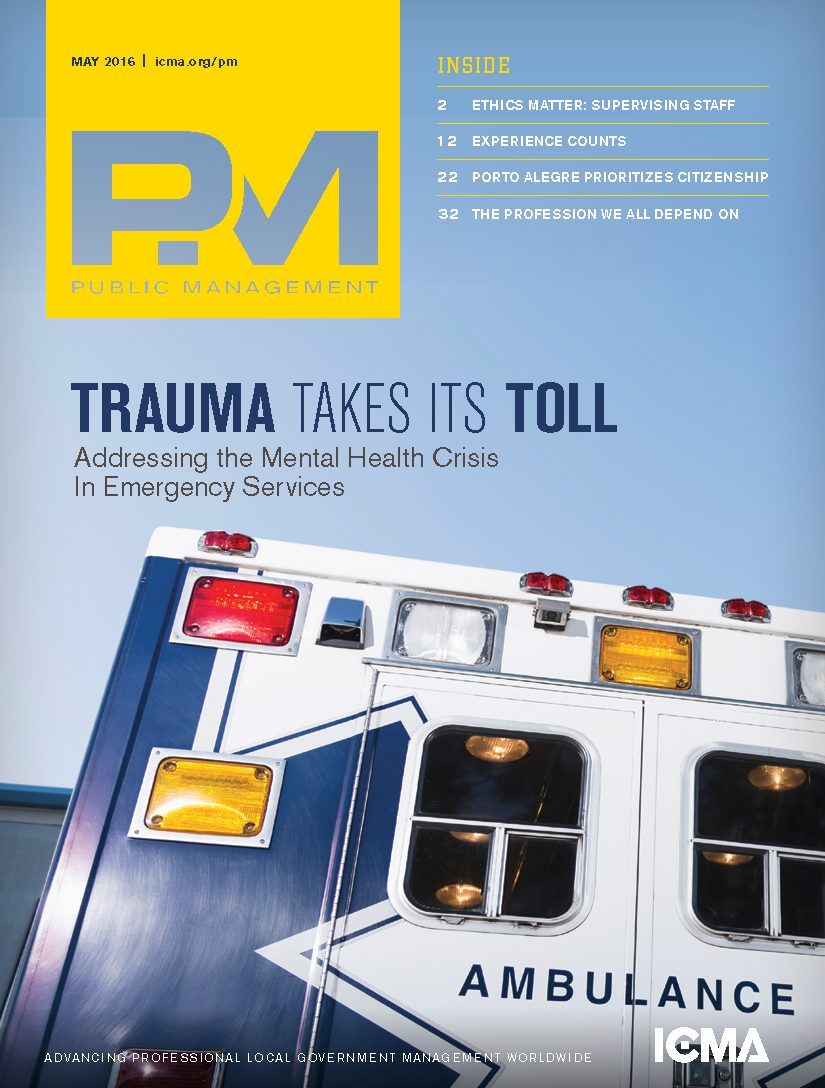
Emergency medical services (EMS) professionals are called on to care for those who are sick or injured. But who is caring for them? As reported in the May Public Management (PM) magazine article “Trauma Takes Its Toll,” a survey of some 4,000 EMS and fire professionals on critical stress, suicide, and available support, which was conducted in 2015 by ICMA Strategic Partner Fitch & Associates, found that 37 percent contemplated suicide and 6.6 percent had attempted suicide.
Emergency responders are at heightened risk for post-traumatic stress disorders, acute and chronic stress, depression, and suicide. The questions authors Jay Fitch and Jim Marshall ask managers: Do you know who they are in your local government organization? Do you know how to help?
The authors recommend following the National Emergency Number Association’s 9-1-1 Standard on Acute/Traumatic and Chronic Stress Management. The standard describes comprehensive stress management plans with these elements:
- Offer stress management training.
- Provide onsite educational materials.
- Ensure EMS personnel can participate in critical incidence stress management activities.
- Create an employee assistance program.
- Identify local therapists.
- Develop peer-support programs.
- Adopt programs that incentivize 9-1-1 telecommunications professionals to make lifestyle changes to protect their mental and physical well-being.
For more specific details on each of these components, read “Trauma Takes Its Toll” in the May PM.
New, Reduced Membership Dues
A new, reduced dues rate is available for CAOs/ACAOs, along with additional discounts for those in smaller communities, has been implemented. Learn more and be sure to join or renew today!
